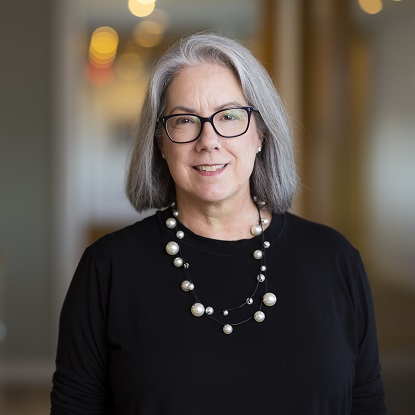Institutional Investor was proud to recognize leaders within the allocator community for their outstanding contributions to portfolio development at the second annual AlphaEdge Recognition Dinner. Prior to the event, we sat down with Kate Murtagh, recognized in the category of Most Influential Women in Investment Management.
Kate is a lawyer by training and experience: Before she assumed her current role at Harvard Management Company, she received her Bachelor of Science from the Rensselaer Polytecnic Institute in Troy, New York as part of the Accelerated Six-Year Management Law Program. After she earned her JD from Cornell Law School, she spent 16 years as an attorney at Goodwin Procter LLP, one of the largest law firms in the world by revenue with more than 1,800 lawyers on staff globally.
At Harvard Management Company (HMC), she has been Managing Director of Sustainable Investing and Chief Compliance Officer for 18 years. At the $50.7 billion endowment in Boston, she oversees regulatory and legal matters relating to HMC’s investment activities, is a key contributor to the design and management of HMC’s sustainable investing program across all asset classes and collaborated with Harvard University to become the first U.S. university endowment signatory to the Principles for Responsible Investment and Harvard’s more recent pledge to make its endowment portfolio net zero of greenhouse gas emission by 2050.
The following has been edited for length and clarity.
What is the biggest challenge facing the industry today?
 For endowments, the biggest challenge is understanding the purpose that we serve our respective institutions. Endowments are meant to exist in perpetuity for the benefit of current and future generations, and distributions from the endowment support more than one-third of the University’s annual operating budget.
For endowments, the biggest challenge is understanding the purpose that we serve our respective institutions. Endowments are meant to exist in perpetuity for the benefit of current and future generations, and distributions from the endowment support more than one-third of the University’s annual operating budget.
Every endowment’s goal is to produce long-term returns. For HMC, we also need to be particularly mindful of both liquidity needs and the portfolio’s risk level to ensure that the University is able to maintain critical funding for financial aid, faculty support, research initiatives, and more.
Do you think that it’s easy to invest long-term?
Nothing about long-term investing is easy. At HMC, we’re fortunate to have an excellent investment team that seeks opportunities across the investment universe. In our sustainable investing work, we believe that investors should consider relevant environmental, social, and governance factors that could materially affect the financial returns of our investments.
Part of being a long-term investor is thinking about investment factors and how they may change over time. For example, HMC is looking into climate solutions. We’re also seeking investment opportunities as we all adapt toward a less carbon-intensive economy.
Which is the portfolio that excites you the most?
Harvard University has committed to have its endowment portfolio be net zero of greenhouse gas emissions by 2050, so I find investing in climate solutions to be very interesting. Not only is it an area that we believe could provide strong returns, but it also supports the acceleration to a low-carbon economy, which must happen in order for us to meet Harvard’s objective.
When you look at energy at a macro level, where would you like the industry to be in 2050?
We must move as quickly as we can to support adaptive and transformative technologies that will close the gap as we move towards a less carbon-intensive economy.
Who were your mentors?
I’ve had great mentors in my life. I still remember lessons from some of my grade school teachers, law professors, and the federal judge I clerked for. It’s important to build that network. I’ve been lucky to find the people I needed. Today, it’s very humbling for someone to tell me that they consider me their mentor.
If you weren’t an allocator, what would you be doing today?
Over the years, I’ve had the opportunity to support some wonderful charitable organizations. I think I would be spending more time with those charitable causes that are dear to me.
What is the one tangible thing that you’d like to improve about the industry?
Increasing diversity of thought in the industry and increasing access for exceptional non-traditional candidates, so that all talented individuals understand that they could have a career in the investment industry. We need to de-mystify the industry, so folks like me, who didn’t have access to this industry growing up, know that it exists and it’s a fantastic place to build your career.
What is HMC doing, and what are you doing to help Harvard along?
HMC has worked with groups like SEO and Girls Who Invest to broaden the applicant pool for entry-level positions on our investment team.
Institutions need to understand that our industry could be much more welcoming to exceptional non-traditional candidates. Those seeking to achieve superior long-term returns need to incorporate expansive talent acquisition practices to ensure they have access to the best investment talent.
For more content of Investor Week, visit the group here.
To discuss the content of this article or gain access to like content, log in or request membership here.
